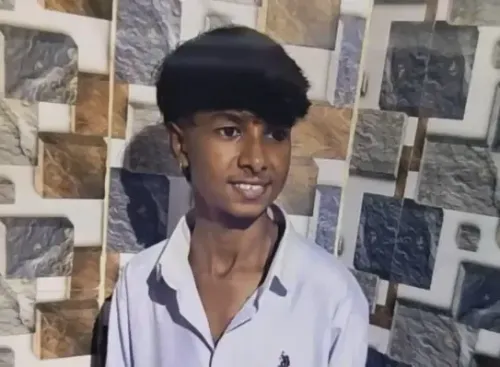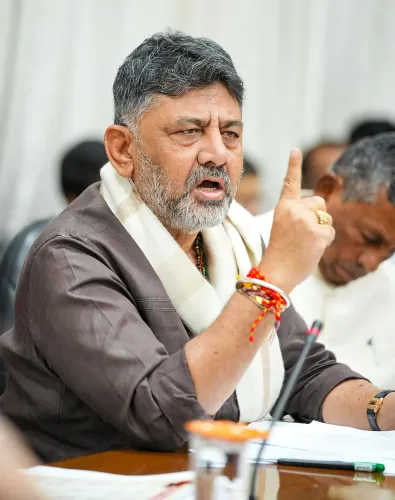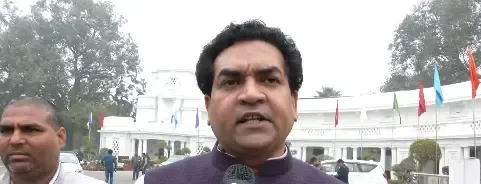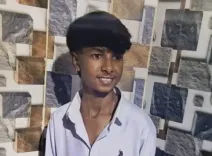How Did India's 'Operation Sindoor' Dismantle Pakistan's Terror Infrastructure?
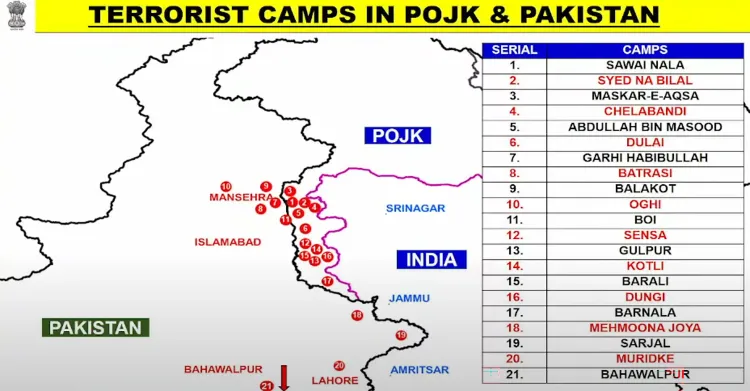
Synopsis
Key Takeaways
- Operation Sindoor targets the backbone of Pakistan's terror infrastructure.
- Terrorist organizations are rebranding to evade international scrutiny.
- Training camps are often hidden within government buildings.
- Pakistan Army and ISI play crucial roles in supporting these terror outfits.
- India's strategic operations are essential for regional security.
New Delhi, May 7 (NationPress) The Pakistan Army, in collaboration with its Inter-Services Intelligence (ISI), has been secretly aiding anti-India terrorist groups such as Lashkar-e-Taiba (LeT), Jaish-e-Mohammad (JeM), and Hizbul Mujahideen (HM). This support takes the form of coordinated financial, logistical, doctrinal, and military assistance, including direct combat training.
In response to sanctions from the Financial Action Task Force (FATF), the Pakistan military has attempted to give a superficial revamp to terrorism in Jammu and Kashmir by adopting new names such as The Resistance Front (TRF), People Anti-Fascist Front (PAFF), and Kashmir Tiger (KT) for established terrorist organizations like LeT and JeM. This rebranding is aimed at evading scrutiny from international terror watchdogs and portraying terrorism as a local resistance movement. Pakistani military personnel frequently visit training camps of these groups to oversee terrorist training.
Groups like LeT and JeM have established operational bases hidden within government facilities across Pakistan and Pakistan-occupied Jammu and Kashmir (PoJK). Numerous training camps or Markaz, detachments, and launch pads are currently situated close to military facilities, health centers, and cantonments. For instance, locations such as Sarjal - Tehra Kalan (JeM) and Mehmoona Joya - Sialkot (HM) operate within the grounds of Basic Health Units (BHUs), providing essential cover for the activities of these terrorist groups.
These terrorist organizations are equipped with military-grade communication systems like Long Range (LoRa) and Digital Mobile Radio (DMR), allowing them to evade technical surveillance. The Pakistan military is also enhancing signal strength along the International Border (IB) and Line of Control (LoC) to support infiltrating terrorists. Facilities such as Sarjal - Tehra Kalan house high-frequency communication setups for coordination with infiltrators.
While these launch pads are heavily utilized for arms training, religious indoctrination and additional support activities such as funding and propaganda occur in larger facilities located deeper within Pakistan, including Markaz Taiba (LeT) in Muridke and Markaz Subhan Allah (JeM) in Bahawalpur. These centers not only accommodate senior commanders but also act as hubs for radicalization and various training programs on intelligence, arms handling, and more.
The commanders of these terrorist groups exploit these facilities to disseminate anti-India propaganda, inspiring recruits for jihad against India. An example is the hate speech delivered by JeM chief Masood Azhar in December 2024 at Markaz Subhan Allah in Bahawalpur.
Facilities like Markaz Abbas Kotli (JeM) and Markaz Ahle Hadith, Barnala (LeT) are extensively used for indoctrination, reconnaissance, and planning terrorist actions, including infiltration.
Besides offering logistics, financial backing, and operational bases to these groups, the Pakistan army is strategically facilitating the training of terrorists. Members of LeT, JeM, and Hizbul Mujahideen (HM) receive training from the Pakistan Special Services Group (SSG) in guerrilla warfare tactics. Camps such as Syedna Bilal (JeM), Shawai Nalla in Muzaffarabad (LeT), and Maskar Raheel Shahid Kotli (HM) are extensively utilized for imparting arms training and physical conditioning to members of these terrorist organizations under the supervision of the Pakistani army and ISI.
Here's a brief overview of some key terror facilities in Pakistan:
Markaz Subhan Allah, Bahawalpur: Operational since 2015, this facility serves as the main center for JeM training and indoctrination and acts as the operational headquarters for the organization. It has been linked to significant terrorist planning, including the Pulwama attack on February 14, 2019. The Markaz includes residences for JeM Chief Maulana Masood Azhar and other key figures, who frequently deliver anti-India rhetoric to recruit youth for jihad.
Markaz Taiba, Muridke: Established in 2000, this is the primary training center for LeT. It offers arms and physical training and serves as a center for indoctrination, enrolling around 1,000 students annually. The facility has historical ties to significant terrorist operations, including the 26/11 Mumbai attacks.
Sarjal Tehra Kalan: Located in the Shakargarh Tehsil of Narowal District, this facility is a primary launching point for JeM terrorists infiltrating into Jammu and Kashmir. Its proximity to the International Border allows for cross-border operations, including arms smuggling and terrorist infiltration.
Mehmoona Joya facility, Sialkot: Situated within the premises of a government health unit, this facility is used for the infiltration of Hizbul Mujahideen cadres into Jammu. It provides training for terrorist operations and weapon handling, playing a crucial role in supporting terrorist activities.
Markaz Ahle Hadith Barnala, Bhimber: This facility is significant for LeT infiltration operations into India. It can accommodate up to 150 terrorists and serves as a staging area for operations.
Markaz Abbas, Kotli: This important facility for JeM is involved in planning and executing terrorist activities in Jammu and Kashmir.
Maskar Raheel Shahid, Kotli: One of the oldest facilities of Hizbul Mujahideen, it specializes in various forms of military training for its members.
Shawai Nallah camp, Muzaffarabad: A significant training camp for LeT, this facility has been linked to major terrorist attacks and serves multiple purposes, including recruitment.
Markaz Syedna Bilal: This main center for JeM serves as a transit camp for terrorists heading to Jammu and Kashmir.


